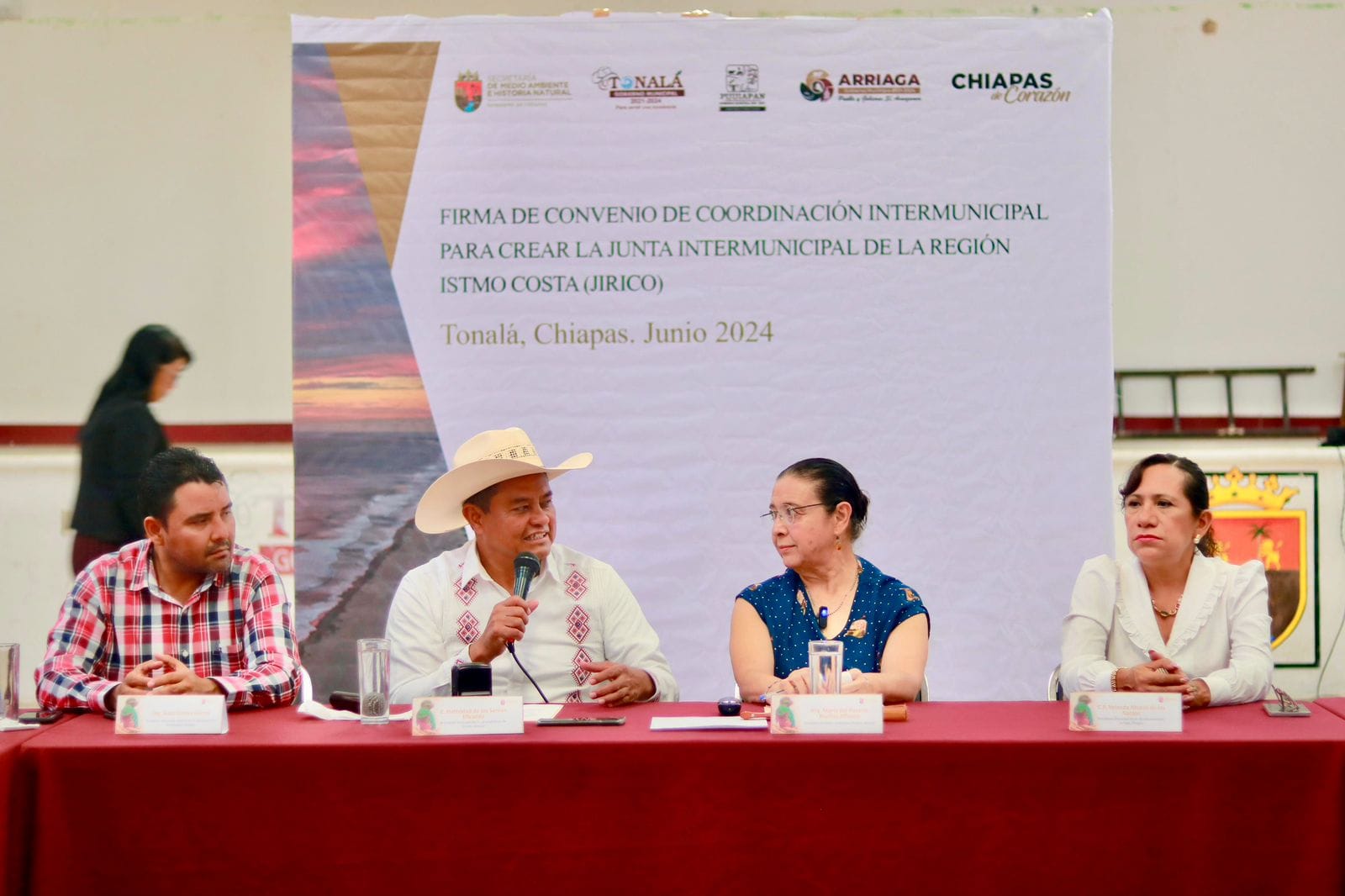The Governors’ Climate and Forests Task Force (GCFTF) in Mexico, in partnership with Pronatura A.C. and under the leadership of Silvia Llamas, GCFTF Country Director, has made significant strides in advancing environmental governance, particularly in the state of Chiapas. July 2024 saw critical developments with the formalization of two new Intermunicipal Boards for Environmental Management—Juntas Intermunicipales de Medio Ambiente—covering the Ríos Grande and San Vicente regions, as well as the Istmo Costa region.
These boards, established with the support of the GCFTF Mexico, are designed to enhance collaboration between municipal governments and various stakeholders. They aim to address environmental challenges more effectively by promoting sustainable resource management at the municipal and regional levels. The initiative, led by Chiapas’ Secretariat of the Environment and Natural History (SEMAHN), marks a milestone in the state’s efforts to create more inclusive and efficient decision-making mechanisms.

Credit: Pronatura A.C.
The formal agreements, signed by SEMAHN’s head, María del Rosario Bonifaz Alfonzo, and the mayors of the involved municipalities, reflect a commitment to joint environmental governance. These agreements are not just about collaboration but also about providing technical support for environmental projects that address key strategic areas, including zero deforestation, solid waste management, ecosystem conservation, water resource management, territorial governance, environmental education, and fundraising.
The significance of these boards lies in their structure as Decentralized Public Organizations (OPDs), which allows them to access international funding and technical resources essential for tackling the environmental challenges facing Chiapas. The creation of these boards follows successful examples from other Mexican states, such as Jalisco, Yucatán, and Quintana Roo, where similar models have led to tangible improvements in environmental management and rural development.
The experience gained from these regions, particularly through exchanges with established Intermunicipal Boards like Lagunas and Río Ayuquila in Jalisco, has been instrumental in shaping the approach in Chiapas. These exchanges have provided valuable insights, sharing lessons learned and best practices that have informed the development of the new boards.
Beyond the immediate environmental benefits, these Intermunicipal Boards are expected to play a crucial role in fostering social cohesion and cooperation among municipalities. By adopting a bottom-up approach to decision-making, these boards ensure that local communities’ knowledge and experience are integral to addressing climate change challenges. This approach not only strengthens territorial governance but also enhances the capacity of communities to respond to environmental and socio-economic issues.
As Chiapas joins the ranks of other southern Mexican states with active Intermunicipal Boards, the GCFTF, in collaboration with Pronatura A.C., continues to support these efforts, providing technical expertise and facilitating the exchange of knowledge across jurisdictions. The success of these initiatives demonstrates the potential of collaborative governance models to create sustainable solutions to environmental and developmental challenges.
For more information about the GCFTF’s work in Mexico, please visit Pronatura Sur’s GCFTF bulletins.
This collaborative approach, rooted in shared experiences and collective action, exemplifies the power of regional cooperation in achieving sustainable environmental governance. As the GCFTF continues to support these efforts, the future of environmental management in Chiapas looks promising, paving the way for broader adoption of these models across Mexico and beyond.

